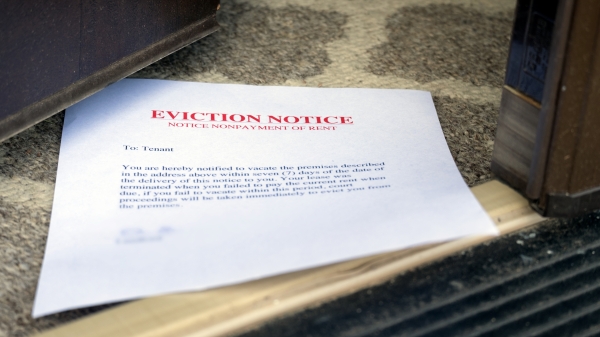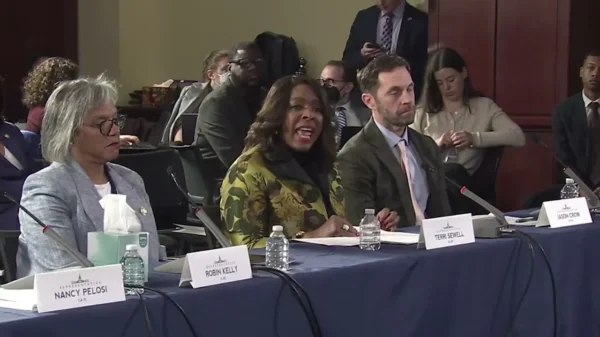By Bill Britt
Alabama Political Reporter
Last week the Alabama House and Senate passed legislation to ban synthetic drugs. House Bill 158 and its companion, Senate Bill 208 are often referred to as the “spice” bill. Although the Senate and House each has approved its own “spice” bill, one version will have to be approved by both the Senate and the House before its final approval is achieved.
When finally approved the state’s ban on synthetic drugs maybe the most effective such law in the U.S. The reason is not the work of nimble minded attorney but the analytical genius of the forensic scientists.
Lawmaker with the aid and expertise of the State of Alabama Department of Forensic Science have crafted a law that will enable law enforcement to combat these sometimes lethal drugs in a new and comprehensive way. Under the direction of the department’s director Michael Sparks and with the help of assistant director Angelo Della Manna the forensic lab was able to use science to beat the criminals at their own game.
According to Della Manna designer drug manufacturers make small changes in the “designer,” drugs chemical compound rendering the new laws outdated and unenforceable.
According to Della Manna, as soon as a state passes a law making one of these drugs illegal, the makers simply change the formula, making the new substance legal.
“From the time when we drafted the bill to the point that it passed the House we have already had two cases and identified two new drugs that we have seen in Alabama that we didn’t know about. Just between the time that we drafted the bill to now,”said Della Manna.
Della Manna, explains how the manufacturers get around the law, “The analogy that we use in court is, you can have a Barbie doll, if you outlaw the Barbie doll with the summer clothes then somebody is just going to go and take those clothes off and put a different outfit on it and say it is a different Barbie but what you have got to do is outlaw the Barbies.”
As a result Della Manna says their department came up with a way to break this cycle by using the drugs analog. “This bill addresses those kind of synthetic compounds and the drugs that are used as well as any future tweaks to the drugs,” Della Manna explains.
Designer drugs have placed a unseen burden on law enforcement and legislators to enact laws that combat these deadly chemicals.
House Bill 158 was introduced by Allen Farley (R-McCalla) and Randy Wood (R-Anniston) and and its companion, Senate Bill 208 was carried by Senator Arthur Orr (R-Decatur).
“They have really got the youth marketed and they call them Spice or K2 or Blow Your Mind and all these other names,” said Della Manna. “They put them up on the counters. When you go into a convenience store they usually have the 5 hour energy drinks and all of those other kinds of knick-knacks on the counter.”
New synthetic marijuana product commonly known as K-2 or Spice Product are made in labs and not regulated – they are not all the same – and can be anywhere from 5 to 800 times more potent that THC from marijuana. Known in the scientific community as Synthetic cannabinoids. They function in much the same way as THC, the active principle in marijunana. The designer chemical like THC, binds to the same cannabinoid receptors in the brain and other organs. However, with these manmade drugs it has proven difficult to separate the so-called-desired properties from unwanted psychoactive effects. As a result, “fake pot,” has many side effects such as seizures, acute anxiety, panic, elevated blood pressure and even hallucinations.
The other designer drugs targeted in the bills are commonly referred to as, “Bath salts,” and are kind of “fake cocaine.” They are the comprised of the chemical mephedrone, MDPV, and methylone and marketed under such names as “Ivory Wave,” “Purple Wave,” Vanilla Sky,” and “Bliss.” These substances are made by illegal street chemists and can be purchased in convenient stores, head shops and on the internet.
Della Manna explains, “In our bill, we not only address the synthetic cannabinoid, but also the bath salts, because they are doing the same kind of thing with bath salts. These drug dealers may go into Bed, Bath and Beyond and buy vanilla-flavored bath salts and then they lay out these crystals then take a Windex bottle and have the synthetic methanphemine or whatever the synthetic drug would be in liquid form and they spray it on crystal and it sucks up the drug. Then they sell them as ‘bath salts.’ People take them and smoke them.
Manufacturers synthetic marijuana and other similar substances were being created with chemical compounds which had not been identified and prohibited as controlled substances under state law and the minute a substance was outlawed the drug dealers would tweak the formula, so a new law had to be written. But with the new law, Alabama will be able to identify and render drugs illegal without rewriting the state’s laws.
Della Manna again explains the procedure, “If you have a Lego set and you build a structure that looks like a house–that’s the main structure. So that anybody that was grading your ability to build houses out of Legos would recognize and say, ‘Yep, that is a one-story house.’ That’s the main structure.
Now, by analog, what we mean is, let’s say that we outlawed the house that you made, let’s say you had two windows in the front and one garage. If somebody came and took the yellow shutter off of your window and put a red shutter on there–that’s an analog.”
Under the new law the House analog will enable the forensic lab to work in concert with the Department of Public Health to determine whether or not it would act on the same, “analog,” and whether or not it should be controlled.
Della Manna says, the good thing about the analog is it will address the compound and essentially drive the whole enterprise either out of the state or underground.
Alabama’s new law address the foundational problem with making these designer drugs illegal by combining science and law to fight crime.



















































